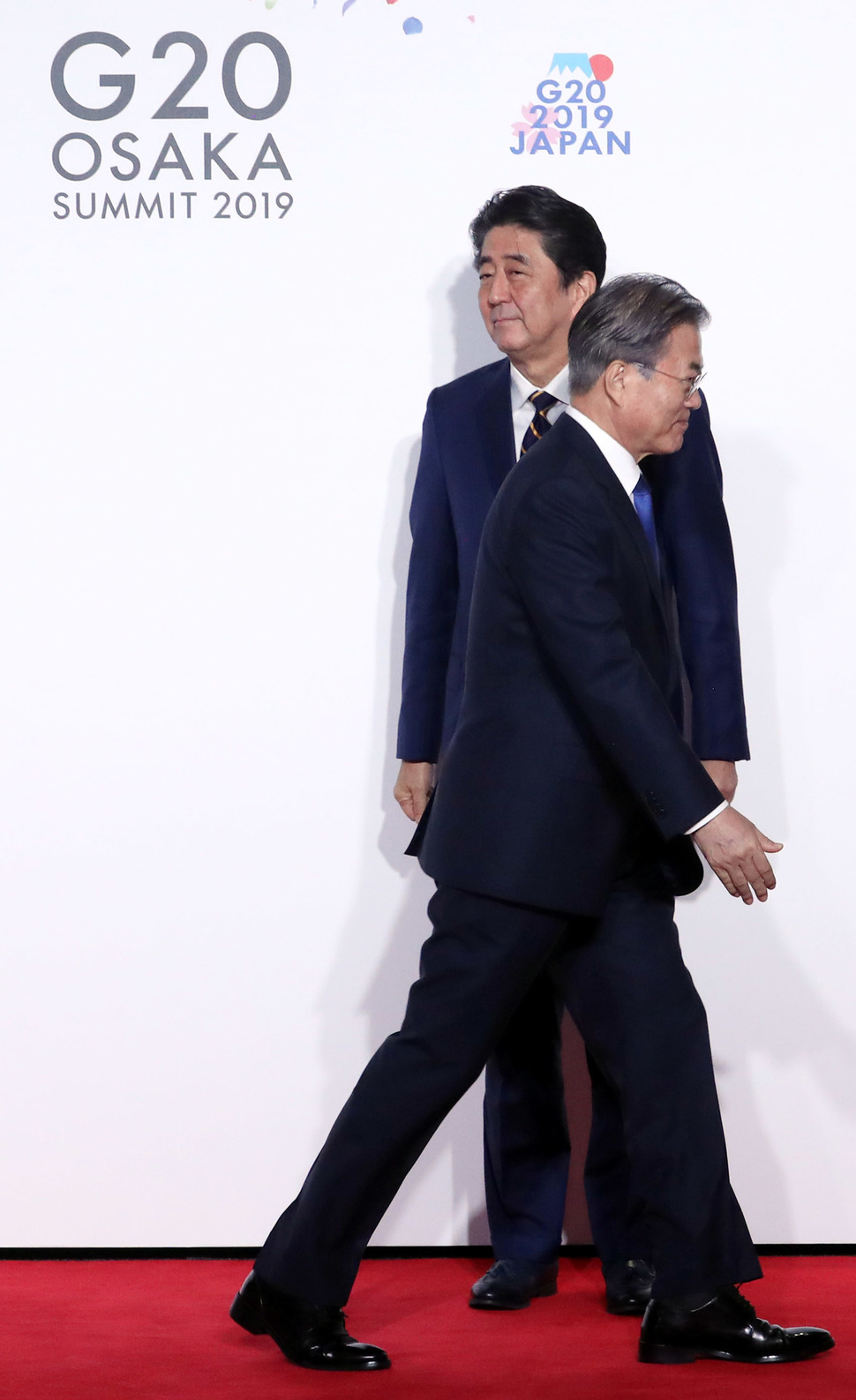 |
|
South Korean Minister of Trade, Industry, and Energy Sung Yun-mo (second from right) ahead of a Blue House cabinet meeting on July 2. (Blue House photo pool)
|
Tokyo reportedly considered imposing more stringent visa requirements on S. Korean citizens as next step
The measures regulating exports of three semiconductor materials to South Korea that were officially announced on July 1 by the Japanese government came as part of a final plan previously decided upon in May, Japanese news outlets reported on July 2. The Yomiuri Shimbun newspaper reported that the Japanese government had been considering various “resistance” (retaliation) measures in response to a South Korean Supreme Court ruling ordering compensation from Japanese companies to forced labor conscription during Japan’s colonial occupation of Korea. A final plan was more or less finalized in May, with a very small number of government officials making a decision on what items would be subject to the measures, the newspaper said. Noting concerns among observers that the semiconductor material export regulation measures would reduce South Korean exports and impact Japanese businesses and the international manufacturing network, the newspaper quoted officials as saying that the “strong intentions of the Prime Minister’s office and surrounding lawmakers made the difference in the end.” As another possible retaliatory measure, the Japanese government also reportedly considered imposing more stringent visa issuance requirements for South Koreans traveling to Japan. The Mainichi Shimbun newspaper said the export regulation reflects a “determination to sway South Korea by emphasizing the strong likelihood of other resistance measures being invoked, including higher tariffs, wire transfer regulations, and more stringent visa issuance conditions.” At the same time, it said the Japanese government “made the determination that with the impending disposal of assets belonging to Japanese companies [following the South Korean Supreme Court ruling], it had to act before actual damages occurred.” “Rather than responding to South Korea’s request for a bilateral summit, [the Japanese government] waited until after the G20 Summit was over to announce the export regulations,” the newspaper said. Analysts also suggested the Japanese government could deal a considerable blow to its own tourism industry if it withdraws the current measures allowing South Korean travelerse to enter without visas. The more than 7.53 million South Koreans who visited Japan last year accounted for 24% of the 30 million tourists who visited Japan in total. While some have speculated that Japan could reduce the period South Korean travelers are allowed to stay without visas from its current 90 days, the impact on South Korea does not appear likely to be major due to the large number of short-term visits. By Cho Ki-weon, Tokyo correspondent Please direct comments or questions to [english@hani.co.kr]






